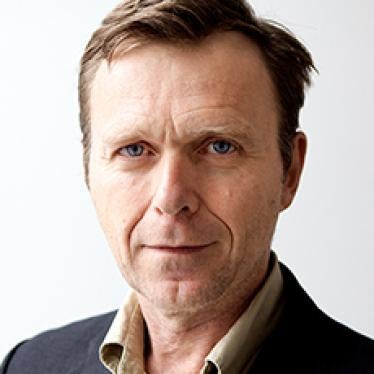Two years ago today, over 150 nations signed up to the "responsibility to protect," the principle that governments have a duty to intervene to protect civilians threatened by war crimes, crimes against humanity, ethnic cleansing, and genocide.
The grotesque atrocities committed in Darfur, documented by Human Rights Watch and others, have been an early test of that principle. There is no doubt that it is a challenging test. There are no obvious or easy solutions to the crisis in Darfur. The practical and diplomatic obstacles are complex and real.
But the bottom line is this: civilians continue to die and to suffer in large numbers; the perpetrators continue to escape justice; and the world stands by and watches.
Around the world campaigners and ordinary people are today demonstrating to draw attention to the plight of millions of civilians in Darfur. In London, Cairo, Berlin, Ulan Bator, Bamako and many other cities around the world, they will be gathering to demand serious action to end the atrocities and secure justice for the victims.
The received wisdom is that now, thanks to pressure from the United States, the UN the EU and others, the Sudanese government is at last cooperating. Khartoum has accepted the deployment of a much larger and more effective international peacekeeping force than the current African Union mission, which has struggled in Darfur for the past three years. Most of the rebel forces and the government now appear ready to return to the negotiation table.
But is the Sudanese government really playing ball?
From the point of view of the past and present victims of atrocities in Darfur it does not look like it. On September 5, during a visit to Khartoum by the UN secretary general, Ban Ki-Moon, the Sudanese government nominated Ahmed Haroun to co-chair a committee which has been established to hear complaints of victims of abuses in Darfur.
Ahmed Haroun is currently the state minister for humanitarian affairs. But he was the minister with responsibility for Darfur within the interior ministry in exactly the period when some of the worst atrocities were committed by Sudanese forces and their proxies in Darfur. He was fingered by Human Rights Watch in its December 2005 report Entrenching Impunity as one of the leaders most responsible for crimes in Darfur in 2003 and 2004.
Haroun was one of those investigated by the international criminal court after the situation in Darfur was referred to the court by the Security Council in 2005. On April 27 this year the court issued an arrest warrant against Haroun on 42 counts of crimes against humanity and war crimes. The ICC's pre-trial judges found "reasonable grounds to believe" that Haroun is responsible for persecuting, raping, attacking and killing civilians in four west Darfur villages in 2003 and 2004. Evidence indicates Haroun recruited, paid and supplied arms to the Janjaweed who carried out the attacks.
Now, instead of cooperating with the ICC and handing Haroun over to face trial, Khartoum has nominated him to head up a committee charged with hearing the complaints of the victims of atrocities.
Is this extraordinary act of bad faith what western diplomats have in mind when they talk of a new attitude of cooperation emanating from Khartoum?
In referring the Darfur portfolio to the ICC, the UN Security Council seemed to accept that justice was an essential component of any effort to end the violence in Darfur. Now, in their haste to applaud the Sudanese government for its grudging acceptance of a new peacekeeping force for Darfur and for a halting return to peace negotiations, the world's politicians and diplomats are turning their backs on the principle of justice for war crimes and crimes against humanity.
This is short-sighted and wrong. The nomination of Haroun to a human rights committee is an affront to the victims of Darfur and a slap in the face to the UN. If the international community remains silent in the face of this provocation, instead of insisting that Khartoum cooperates with the ICC, the Sudanese government will conclude rightly that it can continue to commit atrocities in Darfur with impunity.







